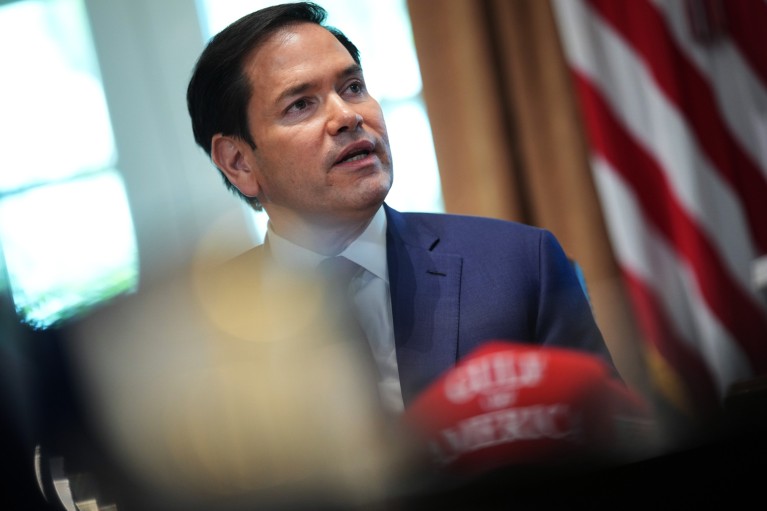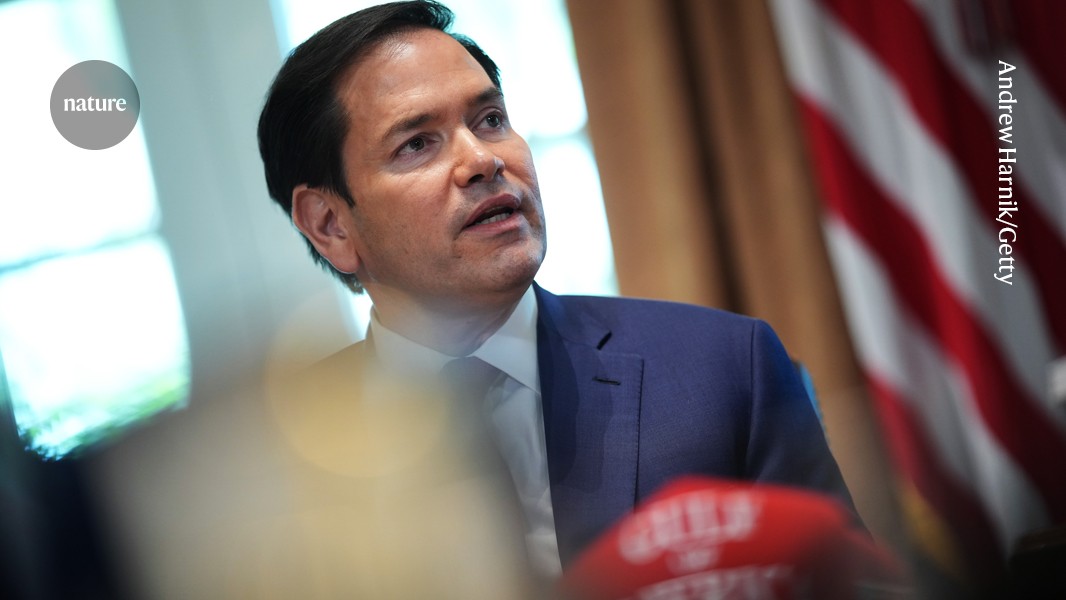
Secretary of State Marco Rubio announced last week that the US government would “aggressively” revoke visas for Chinese students.Credit: Andrew Harnik/Getty
Graduate students, postdoctoral researchers and science laboratory leaders are reeling after an announcement last week that the US government will revoke visas for Chinese students — and they are contacting lawyers.
International PhD students make emergency plans in fear of US immigration raids
In a statement on 28 May, US Secretary of State Marco Rubio said that the policy will apply to students studying in “critical fields” and those with connections to the Chinese Communist party. Rubio also said that the government will revise visa criteria to “enhance scrutiny” for all future visa applications submitted by students from China and Hong Kong.
It is not clear which Chinese students the policy applies to or what criteria will be used to determine who is subject to the policy. But the order could potentially impact tens of thousands of students. In the 2023–24 academic year, some 122,788 graduate students from China held positions in US universities, out of a total of 502,291 international graduate students, according to data from the Institute of International Education (IIE). The IIE conducts an annual census of international students with funding from the US government.
A spokesperson for the US Department of State did not respond to Nature’s request for clarification on what counts as a critical field. But in a statement, they wrote that the policy is aimed at averting “theft of U.S. research, intellectual property, and technologies”. They added that visa adjudication is a national-security decision, and prohibiting entry to the United States by those who might pose a threat to national security or public safety is key to protecting US citizens.
Legal action ahead
Researchers and graduate students who spoke to Nature, most on the condition of anonymity out of fear over reprisals, say that Rubio’s order could devastate their research groups and upend the careers of talented young scientists.
Scientific conferences are leaving the US amid border fears
Ken Ono, a mathematician at the University of Virginia in Charlottesville, says that he has colleagues and students who are upset. Referring to Rubio’s announcement, Ono says: “That is a statement that if you’re from a certain country, you’re just not welcome … and that message is devastating.”
In his department, some research groups are made up mostly of students from China. These groups could be utterly decimated, Ono adds. But he is hopeful it won’t come to that. Ono says that he expects legal injunctions will be filed to stop visas from being revoked — although he doesn’t know who will file these injunctions or at which institutions.
A materials scientist at another university described Rubio’s order as “human rights abuse”, adding that it would set his research back three or more years and that, overall, it would devastate US science and its standing in the world.
He has reached out to his students to tell them that their institution will do its best to protect them, he says. “I still hope that law and due process will hold,” he adds.
A Chinese post-doctoral researcher in biological physics who has been in the United States for more than six years told Nature that she feels “troubled and upset” by Rubio’s announcement. She always wanted to stay in the United States and find a job as a full-time researcher, but at the start of this year, around the time that US President Donald Trump took office, she started looking for options in other countries such as Japan and in Europe.
Her academic supervisor says that she is looking for a pro bono lawyer to represent her students in case their visas are revoked. She has five international students in her research group, and they are all nervous — not just those from China — she says. “This policy will discourage everyone, not just Chinese students, because they will think it could be them next,” she adds.




